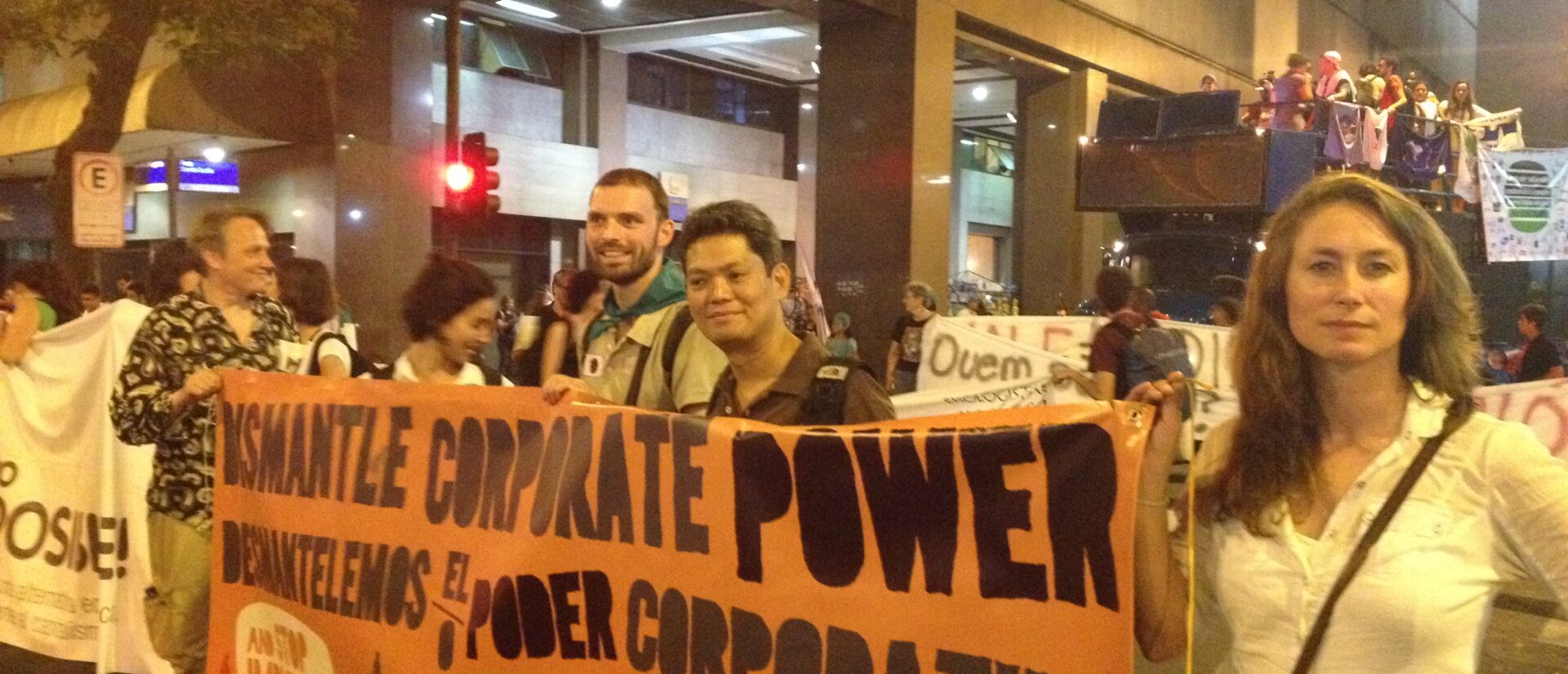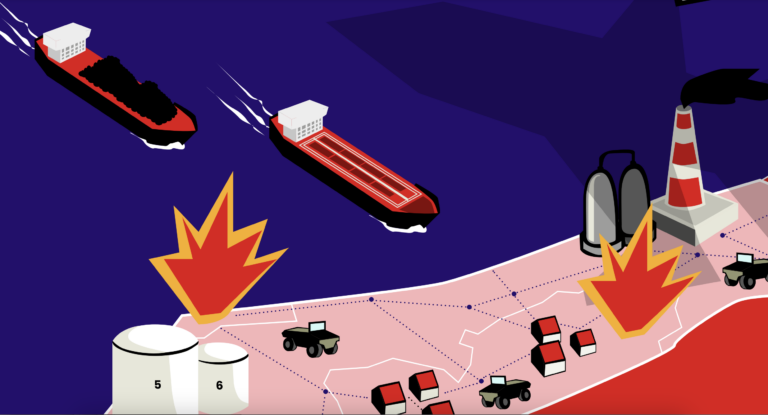
Successful meetings during failed Rio +20 earth summit
While no one held high expectations of the UN Rio +20 earth summit, the majority of NGOs now consider the summit a colossal failure. But fortunately much more took place besides the formal summit, including a number of successful parallel sessions at the Rio +20 conference centre and a Peoples’ summit. SOMO was involved with several of these initiatives.
Unexpectedly, the negotiations concerning the concluding text of the summit had already been completed before the government leaders arrived for the opening of the formal three-day summit on 20 June. Brazil played a decisive role in this. The host country wanted at all costs to be able to show an outcome that would enable them to claim the summit was successful. The Brazilians had no confidence that this would be achieved during the three-day summit.
Nevertheless, the majority of NGOs consider the summit a resounding failure. The final document exudes a lack of leadership and urgency and contains agreements that in some respects are even weaker than the ones reached twenty years ago. The corporate world has also been of too much influence on the UN. This dissatisfaction was partly expressed in the launch of the online petition ‘The Future We Don’t Want’(opens in new window) .
Fortunately much more was going on besides the official summit. There were parallel sessions at the Rio +20 conference centre, the Peoples’ Summit was held (an alternative to the UN conference organised by civil society organisations), and more. The high point was the protest march through the streets of Rio, counting more than 50,000 people marching for social justice and environmental protection and against the commercialisation of nature and life.
SOMO’s contribution during Rio+20
SOMO was involved in several activities during Rio+20. OECD Watch(opens in new window) (a network that is hosted by SOMO) organised a well attended meeting to draw attention to the new OECD Guidelines for Multinational Enterprises.
SOMO also organised an intensive workshop for a group of representatives of NGOs on the new UN Guiding Principles on Business and Human Rights, working with Argentine partner organisation CEDHA and its Indian partner organisation Cividep. The aim of this workshop was to examine the UN guiding principles in a small group and to discuss the usefulness of these guiding principles for corporate research on the basis of a research tool that SOMO, CEDHA and Cividep are currently developing together. The workshop was a success: all fifteen participants were very enthusiastic about the content and format of the workshop and the discussion provided good focal points for the further development of the tool as well as future cooperation on this theme. In the coming months SOMO, CEDHA and Cividep will continue to test and review this tool with a view to launching it at the end of the year.
Furthermore, SOMO was a member of the panel at a side-event of the Global Reporting Initiative discussing the future of sustainability reports by the corporate world. Through this and other activities at Rio+20, SOMO aimed to make its contribution to the strengthening of civil society organisations and to create a clear overview of the negative societal impact of multinationals, and to address these issues in a constructive manner. This is what remains crucial after Rio+20.
Partners
-
Cividep India – Civil Initiatives for Development and Peace India
Related news
-
 The hidden human costs linked to global supply chains in ChinaPosted in category:News
The hidden human costs linked to global supply chains in ChinaPosted in category:News Joshua RosenzweigPublished on:
Joshua RosenzweigPublished on: -
 The power to extract value from the value chainPosted in category:Long read
The power to extract value from the value chainPosted in category:Long read Rodrigo FernandezPublished on:
Rodrigo FernandezPublished on: -
Powering injustice Published on:
 Lydia de LeeuwPosted in category:Publication
Lydia de LeeuwPosted in category:Publication Lydia de Leeuw
Lydia de Leeuw

